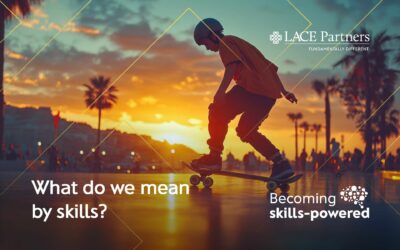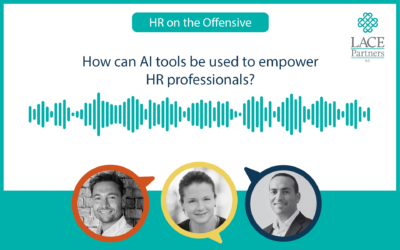This blog includes one of the the topics discussed in our recent One Big Thing research. Click here to learn more.
Why are some employers finding it challenging to recruit Gen Z workers? How have attitudes and needs around the workplace developed over the last few years? This is a challenge faced globally for businesses and in this week’s blog we speak to Steven Rothberg from College Recruiter, who gave us his thoughts on how attitudes to work have changed amongst different generations and what employers can be doing to ensure they attract the best talent and appeal to the next generation entering the workforce.
What trends have you noticed in graduates searching for their first job?
People in the Gen Z demographic are digital natives and mobile first. To digital natives like Gen Z, using their smartphone to find a job is normal and expected. The youngest of millennials think of the internet as a place to go. Whereas Gen Z tend to treat the internet as you would air, it’s there and you don’t need to think about it. They are only surprised when it’s not present. Does that mean that they have a lower tolerance and expect everything to be quicker? It’s actually more to do with what they consider to be technology; something that you’ve always had is not technology. It’s not necessarily a negative that they expect fast internet – it’s more of a result that the technology has existed long enough that it should be that way.
When a Gen Z employee joins an organisation, do they expect to have access to technology that supports their roles?
Expectations are established at the first point of contact. If you send someone from Gen Z to an application tracking system (ATS) and ask them questions that will only be relevant after the point of interview they’re going to be turned off. On the flipside, people from previous generations are used to the old hiring process so are likely to have a higher level of tolerance. Being able to apply online is an improvement over the old process and they are more likely to go along with the irrelevant questions if it means that the overall experience will be better.
For someone from Gen Z that’s never experienced the old hiring process and is fresh out of education it will be their first time interacting with an ATS or similar technologies. Gen Z expect employers to be transparent with the results of the hiring process and when you don’t meet these expectations it turns them off. It’s worth highlighting that they’ve come of age in a hot labour market; there were a few months during Covid where in most sectors it went very cold, but it then went back to being a hot environment.
Why is the dynamic different when hiring Gen Z?
Gen Z’s working age experience is that they’re in demand; they don’t need to look hard for jobs, jobs need to look hard for them. This creates a different expectation. It can be hard for an older person to understand that people don’t take jobs anymore simply because you pay them. They expect fair and equitable pay for the talent they have and that is different to fair and equitable pay for the role they have. Gen Z expect to apply quickly, if they are being assessed and told why they’re fine with that. Alongside this, they also want an estimated time for how long these processes are going to take. From their perspective, if you are taking too long to decide it would be stupid not to look at offer job offers with a quicker response times.
What are your thoughts on the other components of the value proposition?
Gen Z care a lot about the mission and the purpose of the organisation they’re working for. They want to work for an organisation whose aim is to make the world a better place. It doesn’t necessarily mean you have to solve world hunger but instead what can you do as a business is to bring value to customers, vendors, partners and your employees.
Be forthcoming with the idea that people want purpose, and they want to understand how their job fits into the big picture. It’s not just a big deal to Gen Z but to those of us that are older as well. Older people have learned that they don’t have to be employed in a field that they’re good at but one they care about and interests them. Employee standards have gone up. Candidates will be immediately turned off if they suspect that you are being inauthentic. Embrace the workplace environment you have and authentically communicate that to candidates, so you don’t waste time with people who won’t be a good fit.
Have you noticed any trends around the types of benefits that graduates look for?
Your typical 20-year-old couldn’t care less about a pension, they are decades away from needing one. In fact, most don’t even think the world will still be around in 50 years – why would they want to save for retirement. They want to use the money they have to have a decent place to live, buy groceries and spend extra for the occasional luxury. It tends to be the case that the older people who are designing these benefits plans are only focusing on employees who are approaching retirement. To someone from Gen Z it’s irrelevant, they want to know if they can work from home and if there’s a flexible work environment. Employers that can give different benefit packages to different employees will succeed. Rigid employers must be aware that they might end up cutting out a portion of the labour market. Thanks to the internet it is almost impossible for employers to get away with being dishonest about their benefit packages because your candidate will find out.
What’s going to be different in five years’ time?
Fundamentally there will be no major changes but one big difference will be the adoption of scientifically validated online assessments. Where people are being assessed, in a reasonable amount of time, for their ability to do to the job rather than via their job title for their previous three roles. Online assessments that are based on an individual’s productivity are opening the talent pool dramatically. For example, this has diversified the talent pool as there are people who never went to university being able to qualify for roles that used to be reserved for those who did go to university. This is greatly improving the diversity not just in gender and skin colour but also people with disabilities and those who come from disadvantaged socio-economic backgrounds. It’s a really interesting field to keep an eye on, as there are a small number of assessment of companies that can show you the candidates who rank well in this assessment will be your top performers 2 years later.
Want to listen to the full conversation with Steven? Head over to the podcast here. If you have questions about how you can optimise your talent strategy for Gen Z, get in touch via the form below:






